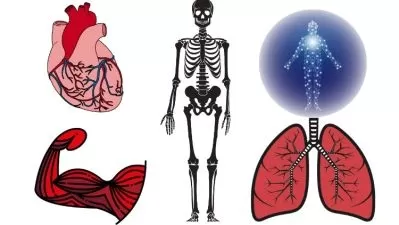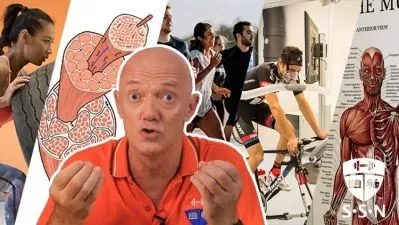Evolution. A heterodox view
Scott Turner
10:39:39
Description
Darwinism is not the only credible theory for evolution
What You'll Learn?
- You will learn the basics of evolutionary theory, including heterodox theories besides the standard Darwinism..
- You will learn a scientifically sound critique of the Darwinian idea.
- You will learn a detailed history of evolutionary thought.
- You will be able to put modern debates over evolution and Darwinism in a broad philosophical and societal context
Who is this for?
What You Need to Know?
More details
DescriptionThis course will take you through a heterodox theory of evolution. While Darwinism dominates our thinking about evolution today, it has never been, nor is today, the final 'scientific' word. The principal competitor for Darwinism on the public stage at the moment is Intelligent Design Theory. Both suffer from deep incoherencies.
In this course, you will learn a third, and different, way to think about evolution, one that forges a path between mindless Darwinism on the one hand, and Intelligent Design theory on the other.
It is derived from my perspective as a physiologist (concerned with how life works). Being a physiologist, I look at the phenomenon of life in a unique way. While physiology is a science of mechanism, it is also a profound statement of the nature of life per se. Physiologists are perhaps the scientific world’s last vitalists, that is to say, scientists who have an appreciation that the phenomenon of life is unlike any other in the universe.
An understanding of what makes life unique is essential for any theory of life (which includes evolution) to be coherent. Among life’s unique attributes is frank purposefulness and intentionality. Modern evolutionary theory denies these altogether, while Intelligent Design theory misattributes them. This course will show how evolution, like the rest of life, is a profoundly purposeful and intentional process.
Who this course is for:
- This course is intended for seekers of knowledge about evolution and its philosophical and social roots.
This course will take you through a heterodox theory of evolution. While Darwinism dominates our thinking about evolution today, it has never been, nor is today, the final 'scientific' word. The principal competitor for Darwinism on the public stage at the moment is Intelligent Design Theory. Both suffer from deep incoherencies.
In this course, you will learn a third, and different, way to think about evolution, one that forges a path between mindless Darwinism on the one hand, and Intelligent Design theory on the other.
It is derived from my perspective as a physiologist (concerned with how life works). Being a physiologist, I look at the phenomenon of life in a unique way. While physiology is a science of mechanism, it is also a profound statement of the nature of life per se. Physiologists are perhaps the scientific world’s last vitalists, that is to say, scientists who have an appreciation that the phenomenon of life is unlike any other in the universe.
An understanding of what makes life unique is essential for any theory of life (which includes evolution) to be coherent. Among life’s unique attributes is frank purposefulness and intentionality. Modern evolutionary theory denies these altogether, while Intelligent Design theory misattributes them. This course will show how evolution, like the rest of life, is a profoundly purposeful and intentional process.
Who this course is for:
- This course is intended for seekers of knowledge about evolution and its philosophical and social roots.
User Reviews
Rating
Scott Turner
Instructor's Courses
Udemy
View courses Udemy- language english
- Training sessions 31
- duration 10:39:39
- English subtitles has
- Release Date 2024/05/05











